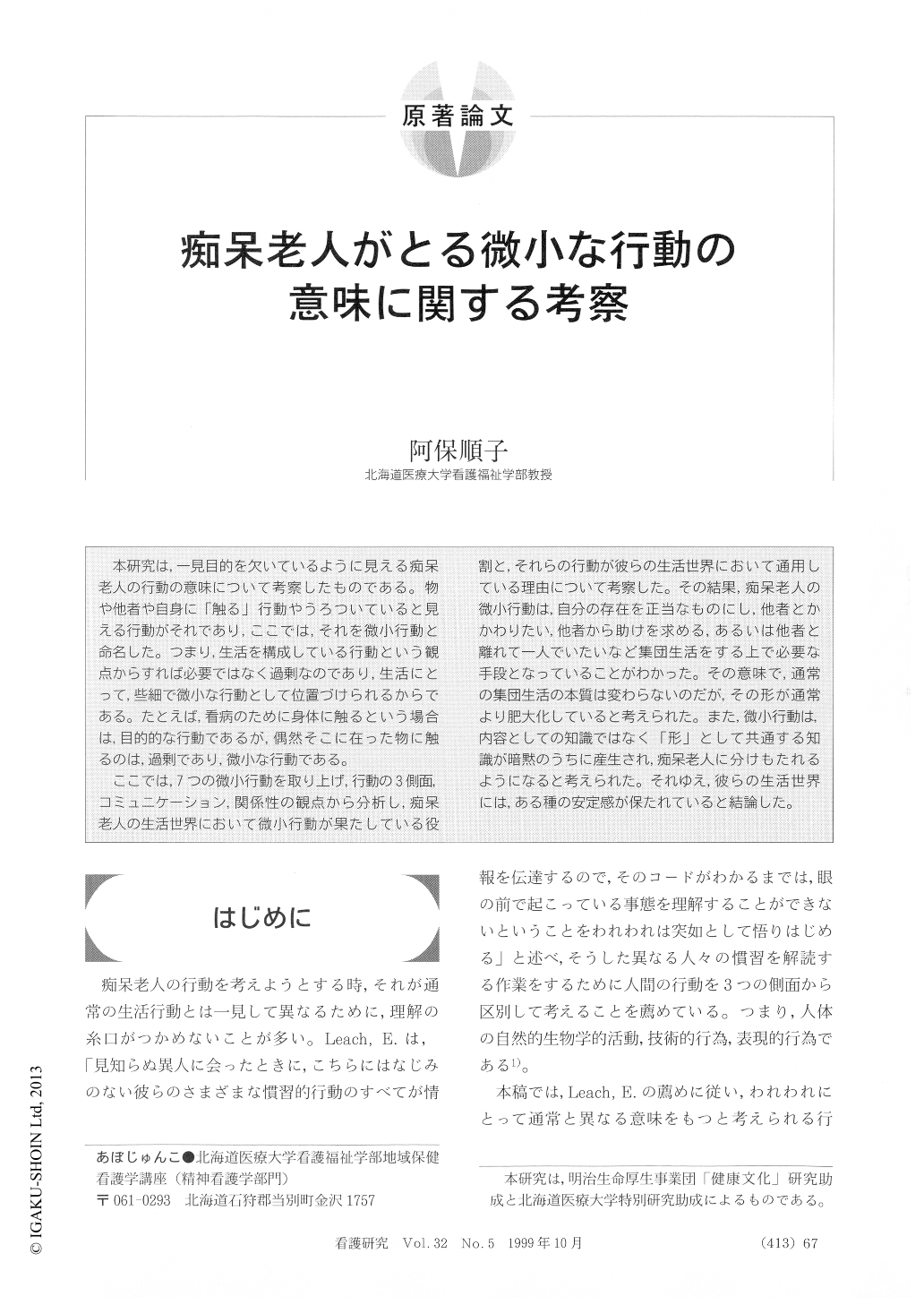Japanese
English
- 有料閲覧
- Abstract 文献概要
- 1ページ目 Look Inside
本研究は,一見目的を欠いているように見える痴呆老人の行動の意味について考察したものである。物や他者や自身に「触る」行動やうろついていると見える行動がそれであり,ここでは,それを微小行動と命名した。つまり,生活を構成している行動という観点からすれば必要ではなく過剰なのであり,生活にとって,些細で微小な行動として位置づけられるからである。たとえば,看病のために身体に触るという場合は,目的的な行動であるが,偶然そこに在った物に触るのは,過剰であり,微小な行動である。
ここでは,7つの微小行動を取り上げ,行動の3側面,コミュニケーション,関係性の観点から分析し,痴呆老人の生活世界において微小行動が果たしている役割と,それらの行動が彼らの生活世界において通用している理由について考察した。その結果,痴呆老人の微小行動は,自分の存在を正当なものにし,他者とかかわりたい,他者から助けを求める,あるいは他者と離れて一人でいたいなど集団生活をする上で必要な手段となっていることがわかった。その意味で,通常の集団生活の本質は変わらないのだが,その形が通常より肥大化していると考えられた。また,微小行動は,内容としての知識ではなく「形」として共通する知識が暗黙のうちに産生され,痴呆老人に分けもたれるようになると考えられた。それゆえ,彼らの生活世界には,ある種の安定感が保たれていると結論した。
The aim of this paper is to describe the meaning of purposeless behavior in senile dementia patients. In this paper, this behavior is termed ‘trivial behavior’ by the author, and it includes such acts as wandering aimlessly or touching things or people without purpose. Such trivial behavior is considered non-objective as compared with objective behavior, that which constructs our daily life.
In this paper, seven behaviors are considered: purposeless touching, picking up non-existent rubbish, rubbing the floor with hands, fumbling with paper, aimless wandering, peeping into another room or staring at another's face, and slapping a person on the head.
This research was conducted in the senile dementia ward of the Aomori Prefectural Hospital, using the participant observation method. The investigation period extended from 1991 to 1995 and covered a total of 85 days. The investigation examined 18 senile dementia patients with serious intelligence disorders and poor technical skills in living-practice.
The seven behaviors were analyzed from three aspects: behavior, communication, and human relations.
The results showed that the trivial behaviors observed in senile dementia patients contributed to their success in living in groups on the basis of justifying their existence, relating to others, and expressing their desire to be alone.
In the conclusion, two important points are discussed. First, the nature of daily life for senile dementia patients living in groups is behaviorally similar to that of ordinary people; however, it is often without meaningful content. Second, there are many kinds of tacit understanding which are mutually created among senile dementia patients living in groups.

Copyright © 1999, Igaku-Shoin Ltd. All rights reserved.


